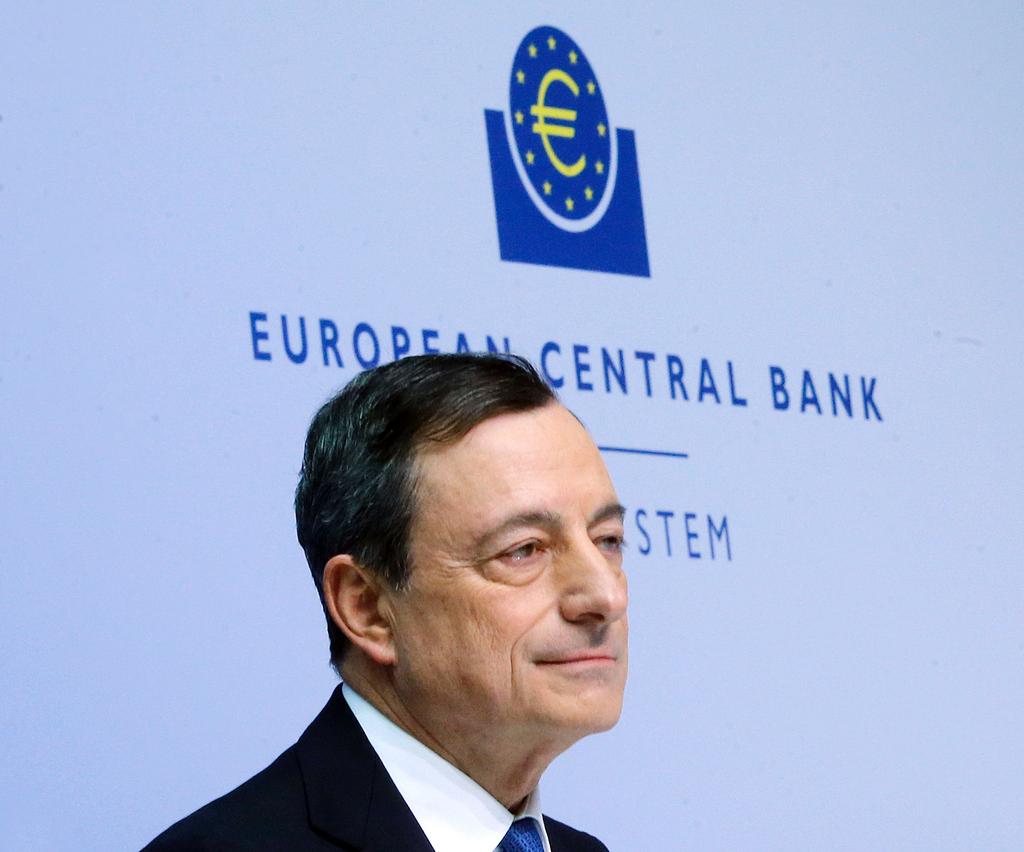Swiss newspapers sceptical of ECB move

Swiss press coverage of Thursday’s announcement by the European Central Bank (ECB) that it would pump hundreds of billions of new money into the eurozone economy ranges from scathing criticism to cautious approval.
The long-awaited leap into quantitative easing (QE), in the form of a government bond-buying programme at the rate of €60 billion per month, was announced by the controversial ECB president Mario Draghi.
The story is being watched even more closely than usual in Switzerland, as anticipation of this ECB move is chiefly what prompted the Swiss National Bank to drop its euro peg last week, causing a massive leap in the value of the Swiss franc.
The Neue Zürcher Zeitung (NZZ) newspaper adopts a dismissive tone in its editorial under the headline ‘The ECB as part of the problem’. Thomas Fuster concludes that QE will do little to change the fundamental problem.
“The three decisive questions – is QE necessary, is QE effective, and are the consequences of QE acceaptable? – are all to be answered with NO,” Fuster writes.
The ECB was partial to raising the spectre of deflation, but the NZZ analysis does not see deflation as a real threat. On the contrary. In the “peripheral countries” a desirable correction is taking place after the years of excessive salaries and price increases, it claims.
The NZZ doubts that QE will stimulate the real economy, and fears the extra liquidity pumped into the financial system is more likely to have the effect of overheating the property market and stock market.
Most objectionable to the NZZ is that countries like France and Italy which are “unwilling to reform” have been let of the hook by this policy.
Impact on the franc
The Berner Zeitung concentrates on the impact of the ECB decision on the Swiss franc and makes the comparison with the United States’ quantitative easing programme. “The US economy is currently growing again at a rate of three per cent. It is disputed whether the experiment will work in Europe.”
The ECB has made it known that it wants the euro to weaken further. “Hopes that the euro would settle around CHF1.10 have been dashed. At least for the moment.“ But the Berner Zeitung expresses confidence that the Swiss economy, which is well positioned will overcome the challenge.
Mathilde Farine of Le Temps welcomes the ECB decision as good news, albeit coming rather late. She points out that deflation is one of the worst things that can happen to an economy, as Japan will testify.
“The institution [ECB] could hardly wait any longer to make this move. Quantitative easing … could have given Europe some oxygen over the past three years. It would have been particularly welcome in the summer of 2012, when the lending rate in certain countries soared, reaching unsustainable levels,” Farine writes.
The ECB has managed to buy time for EU governments, according to Le Temps. Now it’s up to those governments to use that time to implement necessary reforms.
‘Placebo’
The Tages-Anzeiger newspaper brings us a medical analogy. Under the headline: ‘A placebo for the euro’, Simon Schmid begins: “Doctors know the problem. Should they prescribe a Vitamin C cure to a patient, when they know very well, that this doesn’t help much again a viral infection? And when they know that the patient actually knows this too?”
Along with consumers, business circles and policy-makers, Draghi knows that his medicine alone will not be enough. “Without reform, without the easing of the austerity measures in Europe, [consumer] demand will not return.”
Schmid concludes that the ECB made the right decision – despite German criticism. The doctor should act “in the hope that the placebo will help economy leaders and politicians to summon the urgently needed courage for change”.
The Aargauer Zeitung shares the concerns of several commentators that the EU cash injection will not help the real economy but lead to speculation in the finance sector. “Draghi has given the governments in the crisis countries even more time, but they have done nothing so far. In the south they will rejoice. But one thing is certain: This will not solve the crisis in the euro zone.”

In compliance with the JTI standards
More: SWI swissinfo.ch certified by the Journalism Trust Initiative












You can find an overview of ongoing debates with our journalists here . Please join us!
If you want to start a conversation about a topic raised in this article or want to report factual errors, email us at english@swissinfo.ch.